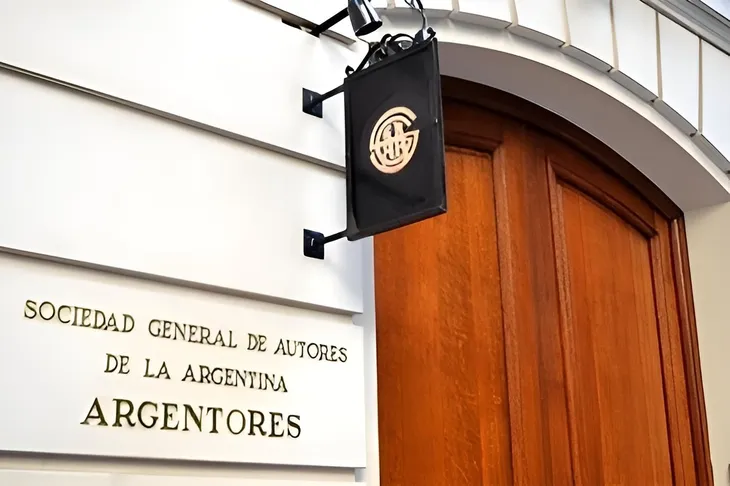India: SRAI begins a new chapter
- AVACI
- 27 мая 2024 г.
- 5 мин. чтения

By Ulises Román Rodríguez
India is the country that produces the most feature films globally, with an average of approximately 1,200 films per year in 17 languages. Contrary to the common belief that Bollywood produces films primarily for the domestic market, the Indian diaspora spans the entire world.
Despite the industry's size, creators in the audiovisual sector lack adequate protection regarding their rights. This longstanding issue began to be addressed in recent weeks when the Indian government, after a wait of more than a decade following the amendment of the Author’s Rights Act in 2012, decided to approve the Screenwriters Rights Association of India (SRAI) to start operating as a Collective Management Organization (CMO) for screenwriters' author’s rights.
The official approval by the Author’s Rights Division of the Indian Ministry of Commerce and Industry sets a new paradigm and ushers in a completely different era for SRAI and the country's audiovisual creators. This approval marks a significant step forward in protecting their rights as creators after a long application and waiting process.
All We Imagine as Light, Indian film in competition at the Cannes Festival
Journey So Far
The formal announcement will be made after the national elections, which began on April 19 and will conclude on June 1, 2024.
Vinod Ranganath, a screenwriter for 22 years and CEO of SRAI, recalls much of the process that led to government recognition. "In 2012, our author’s rights law was amended, and from that amendment, with a group of colleagues, we decided to form SRAI, the first society in India. We have a Board of Directors, and according to our country's Author’s Rights Law, we are supposed to register the company with the Government of India. This application has been with the government for the past eight years, but for various reasons, they have not approved our author’s rights society."
Some lawsuits arising from the legal void created by the non-official status of these societies determined that "even if societies are not approved by the government, they have the right to collect royalties on their behalf." Additionally, "complaints from many corporations and stakeholders in India to the government about the existence of different societies for different repertoires made it very difficult to pay royalties to so many societies. This led the government to simplify business operations under a single-window royalty scheme."
Vinod Ranganath, screenwriter and vice president of SRAI
Thus, under one society, all musical works, music, recordings, production, singers, composers, and writers will be under Music Rights, and the rights of producers, screenwriters, and audiovisuals will be under Audiovisual Rights.
The different societies will set their rates under the Corporation. This way, everyone who approaches will know what to pay, to whom, and will pay that money to this entity, a single window, which will then distribute it accordingly.
The jurisprudence mentioned by Ranganath refers to the judicial ruling in the NOVEX case, which established that a Collective Management Organization (CMO) does not require registration to function as such, provided it complies with the Author’s Rights Act.
Next Steps
With the Indian government's approval, SRAI is prepared for its next move: launching a membership campaign across India to recruit screenwriters and producers as members of the association.
The current CEO of the association told AV Creators News that "India has between 50,000 and 200,000 active screenwriters for films and series in all languages. Additionally, there are about 4,000 deceased writers who still hold the rights to their works. Therefore, we estimate that there will be between 25,000 to 30,000 members in our society in the coming years."
This is a crucial step to strengthen the representation of creators in the audiovisual industry and ensure adequate protection of their rights.
Kill, Indian film to premiere en 2024
Currently, SRAI is actively working on bilateral agreements with other Collective Management Organizations (CMOs) both nationally and internationally.
Additionally, they will conduct training with associations from other countries, grouped under the International Confederation of Audiovisual Authors (AVACI), such as the Argentine Directores Argentinos Cinematográficos (DAC) and ARGENTORES, entities that will host information sharing and training sessions on how to run a Collective Management Organization. Regarding this, Vinod Ranganath mentioned that "in 2012, with an amendment to the law, royalties became inalienable from the author. This means that when the author assigns the rights to the producer after creating an audiovisual work, the producer cannot remove the writer's right to royalties. This amendment was made because producers never gave writers the royalties they were entitled to."
It was then that, along with other colleagues, they decided to form the society, and to carry it out, "we contacted other societies already operating at that time and were asked to go to Europe to meet so we could understand how the CMO system worked. We went to Europe, where we spent about two weeks between the UK, Germany, Spain, and France, trying to understand how CMOs operate, what royalties are, what statutes are, and what transfer means. Then we returned to India and started forming our Cooperative Society, establishing the board, and creating a company. This took us between one to two years, and finally, our CMO was registered as a company in 2016."
DAC and ARGENTORES headquarters in Argentina, companies that will train SRAI
India's Particularities
India has a unique law that states any royalties collected "by any screenwriter must be shared 50% with the producer. So, if I receive 100 dollars, or 100 rupees, as royalties, it means that 50 will go to the producer of my show, and I keep the other 50 dollars or rupees." This 50/50 share will lead to "our society having both owners and authors as members. Therefore, our board will have an equal number of owners and authors as members."
A challenge seen by SRAI is related to the number of languages spoken in India, where Hindi is the national language and spoken by most of the country, as it is "the language through which we communicate with everyone, it is acceptable to all. However, the problem will arise when authors of different languages list their names and the names of their works in the database system. What we are considering is asking them to provide the title in English for their various works or in the different languages they work in because otherwise, no one can sit and read the 17 or 18 languages that will appear; it would be very difficult. Therefore, when they become members, they will have to fill out the form in English or Hindi to include it in the database system."
India is experiencing a historic moment to achieve fair remuneration for authors for the creation of their works. They have come a long way, and now SRAI, with the support of the various entities that are part of AVACI that have been there from the beginning, will continue to accompany and support their Indian colleagues.



























Comments